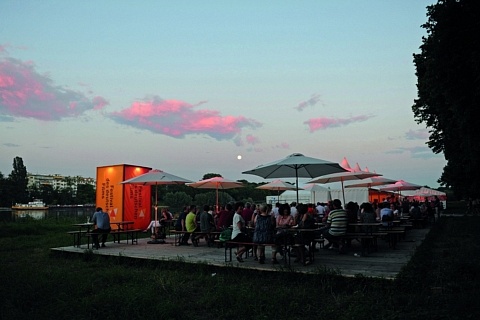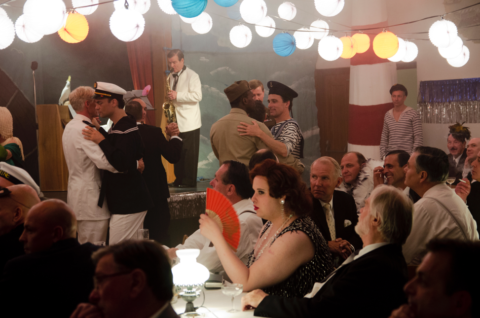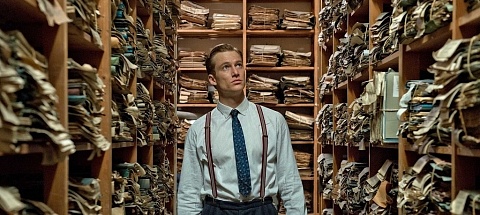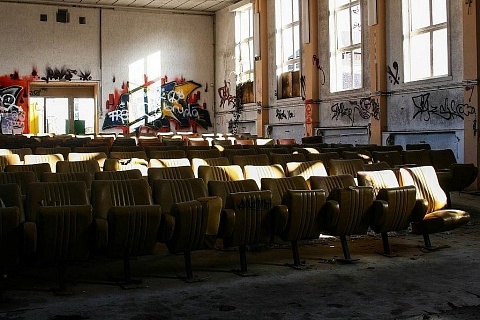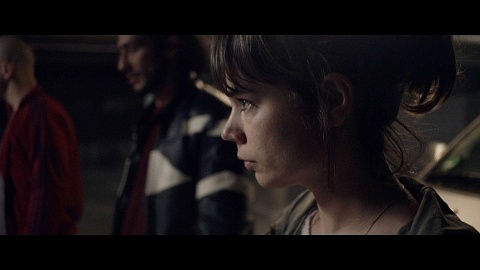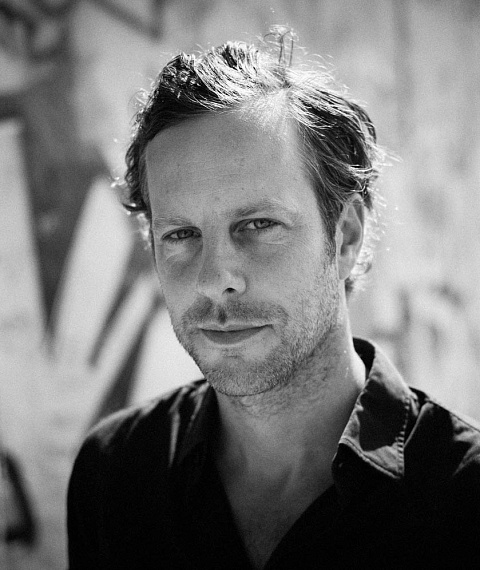Audiences play the leading role at Ludwigshafen's Festival of German Film
Film Culture
Germany has had a vibrant film culture for as long as the medium has existed. It has had some highs (the experimentalism of the 1920s that influenced cinema worldwide comes to mind) as well as some lows (the cinema of the Third Reich), but it has always been intriguing for its relationship to its society.
Today the German film industry has to deal with the issues facing all European film industries: the impact of globalization on film production and distribution; the tensions between commercial viability and the desire to tell stories of local or personal interest; the competition among various distribution systems (cinemas, television, streaming services).
Germany’s entry for Best Foreign Language Film at this year’s Oscars is not the heavy historical drama North American audiences have come to expect.
A docudrama navigates the gay community of 1950s Zurich.
Maggie Peren's film "Colour of the Ocean" questions some basic beliefs about refugees.
Sebastian Schipper's one-take film Victoria is still generating interest.
Labyrinth of Cliches
James SkidmoreNovember 61
Germany's entry for the foreign language Oscar is a largely conventional German historical film
The unique musical world of the German producer / composer / pianist Nils Frahm.
The drama, featuring “the most handsome lovers of the Berlinale,” explores the difficulty of existing outside of heteronormative and socially prescribed life plans in present-day Germany.
The Goethe-Institut Toronto's program curator talks about her interest in contemporary German cinema.
Budding romance gives way to a gritty gangster story. And it's all shot in a single 140-minute take.
Victoria: Trailer
kultur360 EditorsSeptember 300
Watch the trailer to Victoria, Sebastian Schipper's one-take sensation.
In a wide-ranging interview, filmmaker Marc Bauder discusses memory culture in Germany and his work on the Lichtgrenze.
Lichtgrenze video
James SkidmoreSeptember 300
The Lichtgrenze (Border of Light) memorial project.
© Copyright 2025. All rights reserved.


